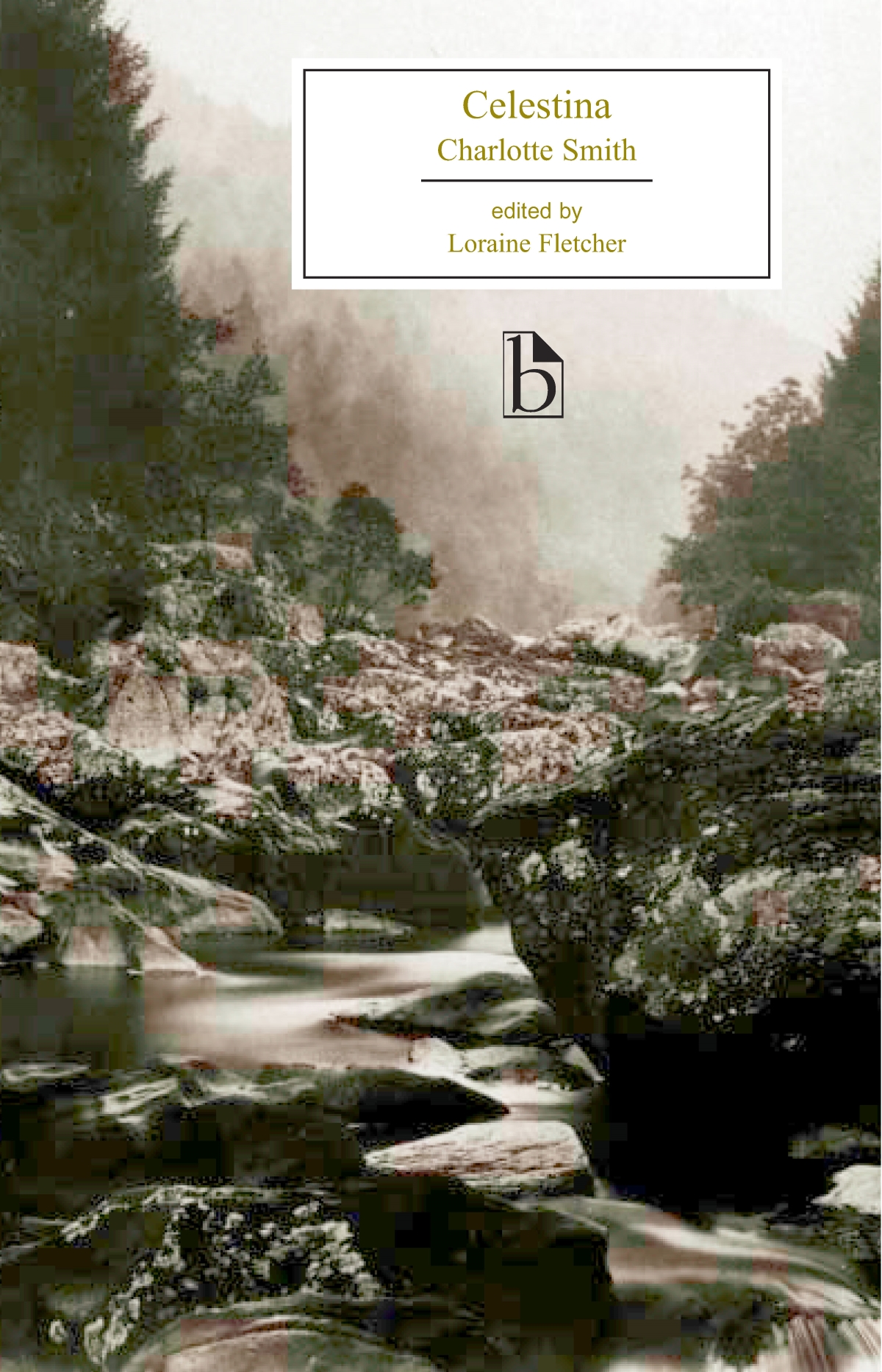"She desired nothing but to be permitted to live single; and be mistress of her time and herself." -- from Celestina (p. 459)
Abandoned in a French convent, young Celestina is rescued by a Mrs. Willoughby and whisked off to England, where she grows into a beautiful woman of rational mind and sound moral fiber. This all makes her irresistible to the sensibly-minded son of the house. Defying financial concerns and social convention, the two are about to marry and embark on what his frivolous sister calls an "insipid domestic life" (147) when circumstances abruptly change, and Celestina is left alone to take care of herself and the people she cares about, with a small income, limited options, and a desire to maintain propriety at all times.
The heroine in this 1791 novel, a single woman with no family (and thus neither male protectors or proper female chaperones), finds herself in a plethora of awkward social situations, "distressed by civility" (209), caught in a tension between being polite to people she can't afford to antagonize, and needing to guard herself from unwanted male attention.
SPOILERS for Celestina, Pride and Prejudice, and Veronica Mars (really!)
When Willoughby rushes off the night before their wedding, to clear up a mystery he refuses to explain even to his closest friends, I was absolutely certain of where the story was going. And I was right, both about what Willoughby had been told, and the veracity of it. I was very much hoping that the storyline would go full Veronica Mars and reclaim Willoughby's best friend Vavasour, a charismatic rake with a potential heart of gold, a la Logan Echolls, so that those two could end up together.
Alas, despite some subversive elements, it's still an 18th century novel in the end, and Vavasour is revealed as just a creep who's been living with a mistress the whole time he was pledging his undying love for Celestina, and scoffs at her "prudery" about the situation. He insists, as some still do, "Don't I know that women all like the very libertinism they are pleased outwardly to condemn" (406), but Celestina, always feeling "a consciousness of hereditary worth, an innate pride" (104) proves him wrong.
Nobody else blinks at the information, though, as if Celestina should expect any man courting her to be doing the same, and Vavasour is practically considered a saint for being nice to the consumptive Emily, the woman he's been in a long-term sexual relationship with -- less to his credit, than to the condemnation of his society. That subversive element comes in, though, because it seems clear that Vavasour could have happily married Emily, if other people would just mind their own businesses and not condemn a woman for life because she was lied to and "ruined" by an older man when she was 15.
Jane Austen was known to have read Smith's work, and scholars believe that Celestina inspired some elements of Sense and Sensibility. Even more noticeable to me, Emily's subplot strongly prefigures the story of Lydia and Wickham in Pride and Prejudice (1813), down to the detail of the sister's suitor trying to track the couple down. Of course, the situation was rendered comically in Austen's novel, where here, the single rash act dooms Emily to a life of prostitution, severed from her family and any hope of reclamation by polite society.
Speaking of Vavasour, it's a total coincidence that I started this right after Can You Forgive Her?, which features protagonist Alice Vavasor and her family. Weird.
Smith indulges in much entertaining criticism of polite society and its hypocrisies, which, while times have changed considerably, are still apt as social satire, like the wealthy young woman described as "considering half the world as beings of another species, whose evils she could not feel for, because she was placed where it was impossible she should ever share them" (89).
Interestingly, we also see up-close a case in which a young man of means is pressured to marry a woman he doesn't love, and he doesn't like it any more than our heroines generally do.
As always, the Broadview Press edition is excellent, with editor Loraine Fletcher providing an in-depth introduction and supporting material that help contextualize the novel.
Smith, Charlotte, and Loraine Fletcher. Celestina. Toronto: Broadview Press, 2004.

Abandoned in a French convent, young Celestina is rescued by a Mrs. Willoughby and whisked off to England, where she grows into a beautiful woman of rational mind and sound moral fiber. This all makes her irresistible to the sensibly-minded son of the house. Defying financial concerns and social convention, the two are about to marry and embark on what his frivolous sister calls an "insipid domestic life" (147) when circumstances abruptly change, and Celestina is left alone to take care of herself and the people she cares about, with a small income, limited options, and a desire to maintain propriety at all times.
The heroine in this 1791 novel, a single woman with no family (and thus neither male protectors or proper female chaperones), finds herself in a plethora of awkward social situations, "distressed by civility" (209), caught in a tension between being polite to people she can't afford to antagonize, and needing to guard herself from unwanted male attention.
SPOILERS for Celestina, Pride and Prejudice, and Veronica Mars (really!)
When Willoughby rushes off the night before their wedding, to clear up a mystery he refuses to explain even to his closest friends, I was absolutely certain of where the story was going. And I was right, both about what Willoughby had been told, and the veracity of it. I was very much hoping that the storyline would go full Veronica Mars and reclaim Willoughby's best friend Vavasour, a charismatic rake with a potential heart of gold, a la Logan Echolls, so that those two could end up together.
Alas, despite some subversive elements, it's still an 18th century novel in the end, and Vavasour is revealed as just a creep who's been living with a mistress the whole time he was pledging his undying love for Celestina, and scoffs at her "prudery" about the situation. He insists, as some still do, "Don't I know that women all like the very libertinism they are pleased outwardly to condemn" (406), but Celestina, always feeling "a consciousness of hereditary worth, an innate pride" (104) proves him wrong.
Nobody else blinks at the information, though, as if Celestina should expect any man courting her to be doing the same, and Vavasour is practically considered a saint for being nice to the consumptive Emily, the woman he's been in a long-term sexual relationship with -- less to his credit, than to the condemnation of his society. That subversive element comes in, though, because it seems clear that Vavasour could have happily married Emily, if other people would just mind their own businesses and not condemn a woman for life because she was lied to and "ruined" by an older man when she was 15.
Jane Austen was known to have read Smith's work, and scholars believe that Celestina inspired some elements of Sense and Sensibility. Even more noticeable to me, Emily's subplot strongly prefigures the story of Lydia and Wickham in Pride and Prejudice (1813), down to the detail of the sister's suitor trying to track the couple down. Of course, the situation was rendered comically in Austen's novel, where here, the single rash act dooms Emily to a life of prostitution, severed from her family and any hope of reclamation by polite society.
Speaking of Vavasour, it's a total coincidence that I started this right after Can You Forgive Her?, which features protagonist Alice Vavasor and her family. Weird.
Smith indulges in much entertaining criticism of polite society and its hypocrisies, which, while times have changed considerably, are still apt as social satire, like the wealthy young woman described as "considering half the world as beings of another species, whose evils she could not feel for, because she was placed where it was impossible she should ever share them" (89).
Interestingly, we also see up-close a case in which a young man of means is pressured to marry a woman he doesn't love, and he doesn't like it any more than our heroines generally do.
As always, the Broadview Press edition is excellent, with editor Loraine Fletcher providing an in-depth introduction and supporting material that help contextualize the novel.
Smith, Charlotte, and Loraine Fletcher. Celestina. Toronto: Broadview Press, 2004.

No comments:
Post a Comment